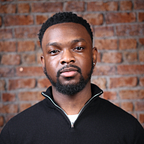Why I went from Politics and Economics at LSE to Software Engineering
Key Takeaways
- If you’re currently feeling lost in deciding what you want to do in your career, I can fully relate. Some books that helped: Mastery (Robert Greene), Design Your Life (Bill Burnett and Dave Evans)
- Beware of the sunk cost fallacy — just because you’ve been going down a path for a certain amount of time it doesn’t mean you have to keep going. Consider all your alternatives and strategise your next move
- If you’re just graduating from university the world truly is your oyster, keep an open mind
In hindsight I took a risk but at the time I saw no other option. Graduating from LSE with a BSc in Economics and Politics it would have been no surprise to start my career in banking, consulting or government and that was the plan. From the age of 16 up until the end of my second year at university, I was set on a career in financial services. Initially, I had no idea what this career really entailed, I only knew that it paid well and you dealt with large sums of money on the job. So it wasn’t until my first internship at a $119 billion private equity fund that I realised I wasn’t so sure I wanted to start my career in a traditional financial analyst role. The actual experience of working in financial services particularly in Private Equity which many consider the pinnacle of buy-side finance was fairly underwhelming. I often found myself bored, drained of energy and passion and somewhat unchallenged by the work. This is common for entry-level roles so I took that under consideration but for me, it was more than just that. The general mood and culture at what was supposed to be one of the most desirable places in finance told me enough to know that this role wasn’t for me. I vividly remember a conversation I had with a senior investment manager on my team who with a very serious look on his face urged me to consider whether I really wanted a career in private equity, the conversation felt more like a warning than anything and I took heed. This was one of a few startling conversations I had with relatively experienced people, for all the glitz and glamour from the outside it still felt as though everyone was trying to escape. I still maintained my interest in corporate finance but I knew that I wanted to attack it from a different angle. Once I finished my internship I decided to start thinking about what else was out there for me.
Next came mastery. I’m referring to the book Mastery by Robert Greene, one of the few books I’ve read that had a direct and immediate impact on my life. The early chapters in the book are about finding your life’s work and although at 19/20 that was an almost impossible thing to know it still provided a good framework for me to begin exploring what I may be naturally interested in and therefore most likely to succeed in. The framework required me to look back into my childhood and early teen years to see what I naturally used to do without being told, the things I enjoyed for the sake of it. Casting my mind back I reminisced about my dream to become a video game developer in my early teen years and the time I spent on my parent's computer creating games using Unity. I enjoyed playing video games and the creative side in me always used to think of ways to make the game better and I dreamt of being able to actually be able to do this. I realised this drive to build and innovate was going unmet in my life and I think a very key reason why I could not stomach the excel heavy analysis in finance roles. From that point on I began investigating if it would still be possible to switch careers into software development even being two full years into a social sciences degree. It was definitely still possible in fact it serves as a reminder to anyone who is still in university that being a graduate in and of itself in MOST circumstances opens up career doors in more fields than you think, you just have to show an interest.
One of the best decisions I’ve made was to take a year out after graduation and start preparing for a career that was completely unrelated to my degree. Was it a risk? Yes but I learnt a lot about myself in the process, I took the time to think and ask myself some tough questions instead of diving into what was in front of me. That being said I’m still early in my career and I’ll be continuing to question and explore my interests, this is by no means the final destination but it is progress in the right direction. In another post, I’ll go into more depth about how I actually made the switch in terms of how I learnt the required technical skills, internships and my self-study methods.
Femi ✌🏾🕊
